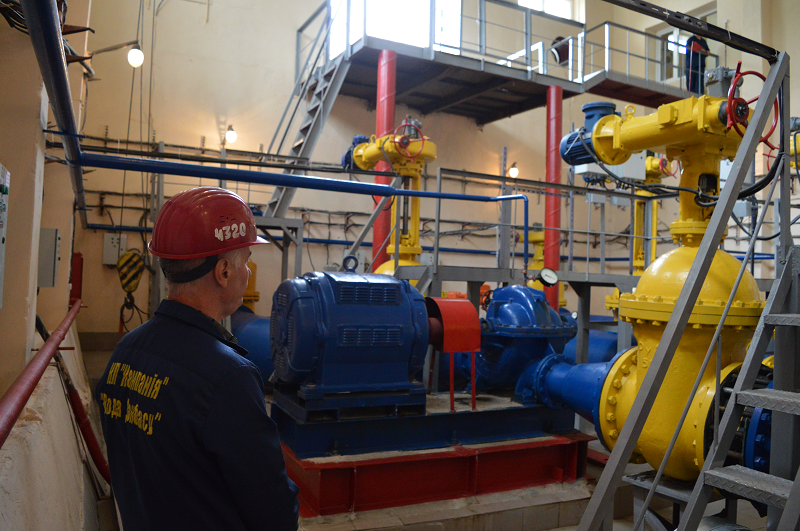Kyiv (ICRC) – The water supply of more than 300,000 people in the Donetsk Oblast is much more secure following International Committee of the Red Cross (ICRC) support for the reconstruction of the key First Lift Karlivska Pumping Station, which was inaugurated today.
Thanks to the work – the single largest project undertaken by the ICRC during Ukraine’s ongoing armed conflict – residents of 12 communities will continue to receive water even if their main supply from the South Donbas water channel network is cut.
“Access to water is of paramount importance – and even more so in times of conflict,” said Alain Aeschlimann, Head of the ICRC Delegation in Ukraine. “That’s why we’ve put so much time and resources into this project, and into demanding that the parties to this conflict do everything they can to protect and avoid damage to key water infrastructure on both sides of the contact line.”
The project, which took more than six months, was inaugurated in the presence of ICRC representatives, high-level officials of the Donetsk Oblast and a number of municipalities.
The main communities benefiting are Bilozerske, Bilytske, Selydove, Myrnohrad, Pokrovsk, Dobropillia, Novohrodivka, Hirnyk, Ocheretyne, Udachne, Novodonetske and Ukrainsk.
The work included a complete restoration of the pumping station, which had been abandoned for years, construction of new 2.8km power lines to the pumping station and the dam of the water reservoir, and the rehabilitation of the weir feeding the station. Work was completed at the end of last year, after which a series of tests took place before the pumping station became fully operational.
“Essential civilian infrastructure must be spared during conflict – international humanitarian law is very clear on that. Pumping and water filtration stations, power plants, hospitals and schools cannot be legitimate military targets, and the ICRC will continue to insist on this,” said Mr Aeschlimann.
“For a couple of years now, we have been supporting the idea of establishing protected zones around critical civilian objects. If all sides are able to agree to these zones, we are ready to act as a neutral intermediary in helping to implement the plan,” he said.

